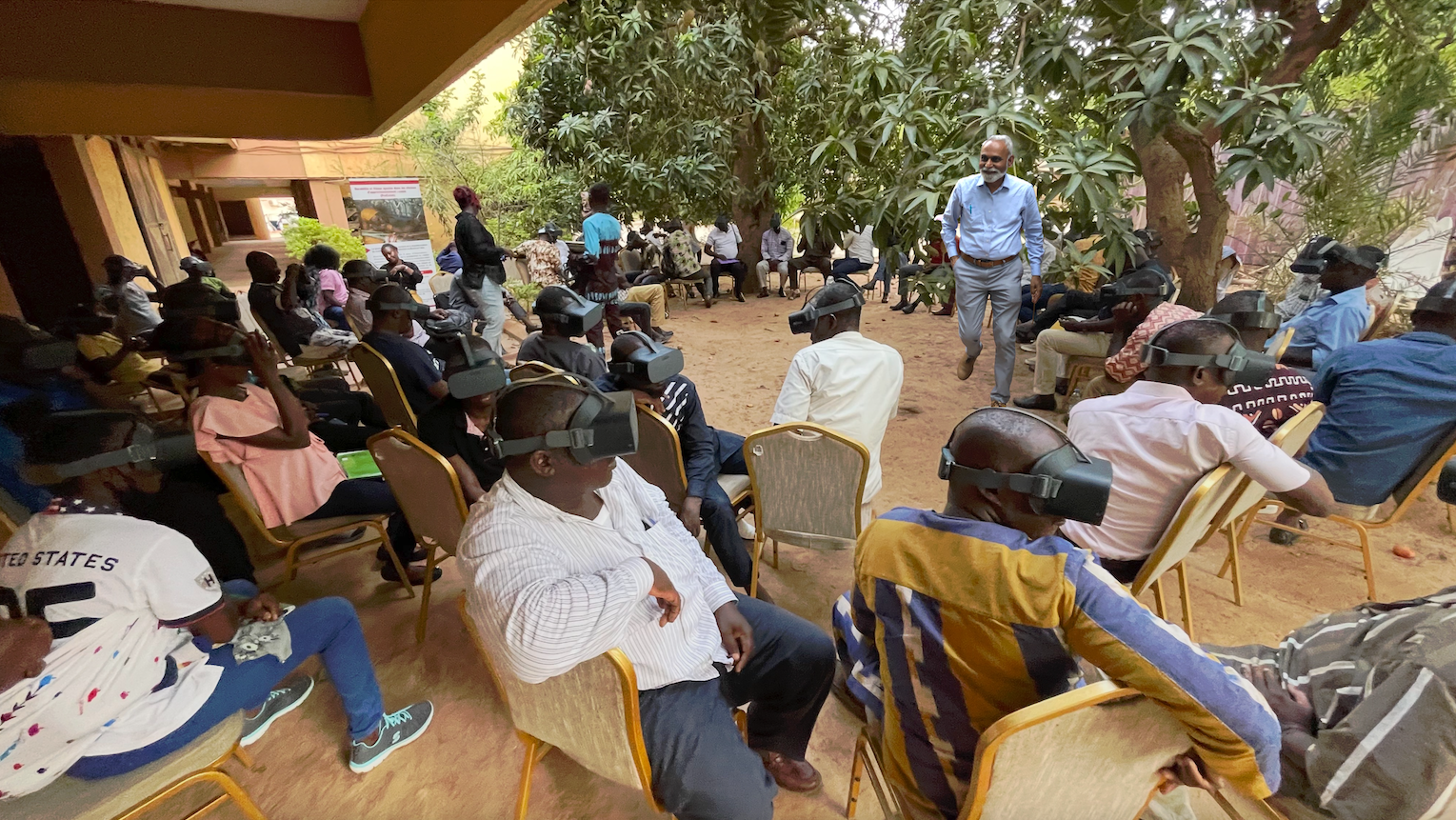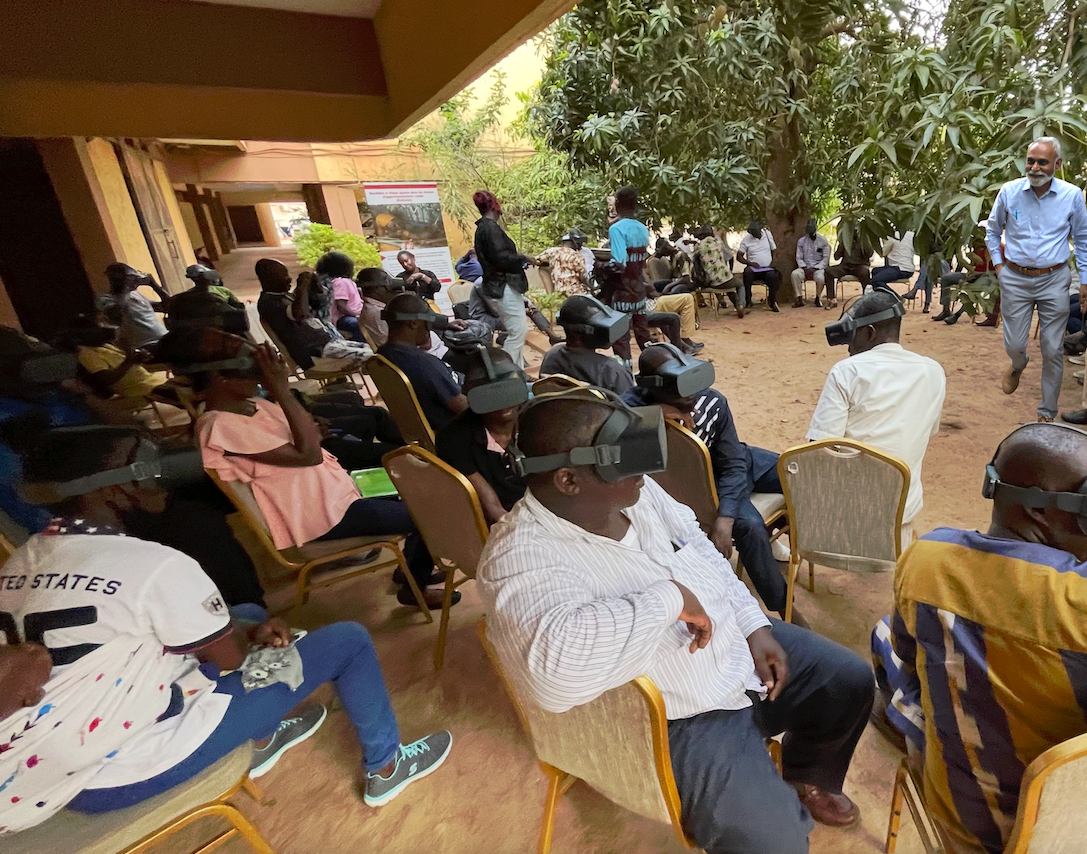Title: Development of training modules and tools for small holder farmers in Cameroon and Burkina Faso. 2020-2022.
Project administrative staff: Mr. Kai Hughes & Ms. Caroline Taco
Project technical coordinator: Keshav Kranthi, Chief Scientist, ICAC
Project consultant: Dr. Sandhya Kranthi
Project funding: German Agency for International Cooperation or (GIZ). GIZ project Agreement number 81271308; Eur. 202,662.
Beneficiaries: Scientists of INERA, Burkina Faso, IRAD, Cameroon, staff of SodeCoton and farmers.
A comprehensive series of training modules, consisting of instructional videos, manuals, and PowerPoint presentations, were meticulously developed and effectively utilized in the training programs conducted in Cameroon and Burkina Faso.

These initiatives played a pivotal role in achieving significant milestones towards improving cotton production practices in the region. These initiatives included in-person training sessions that saw 150 trainers in Cameroon, 83 trainers in Ouagadougou, and 25 trainers in Bobo Dioulasso in Burkina Faso, all equipped with essential knowledge. Moreover, 65 master trainers in Cameroon received specialized training in nano-biopesticides and enriched biochar production for soil regeneration.
Virtual programs reached 52 trainers in Cameroon, 39 trainers in Burkina Faso, and 28 trainers, along with INERA scientists, in Burkina Faso for conventional and organic cotton cultivation. WhatsApp groups facilitated ongoing information exchange and query resolution.
Additionally, a range of training materials, pocketbooks, diagnostic handbooks, and informative videos were developed in both English and French. Finally, a second in-person training program was held in Cameroon to reinforce these efforts, collectively contributing to significant advancements in cotton farming practices and knowledge dissemination in the region.
The ICAC supplied protocols on best practices for high yields in conventional cotton and organic cotton. INERA scientists tested these protocols by initiating experimental field trials in 2023 and reported positive results with yield increases in both systems particularly in organic cotton.



